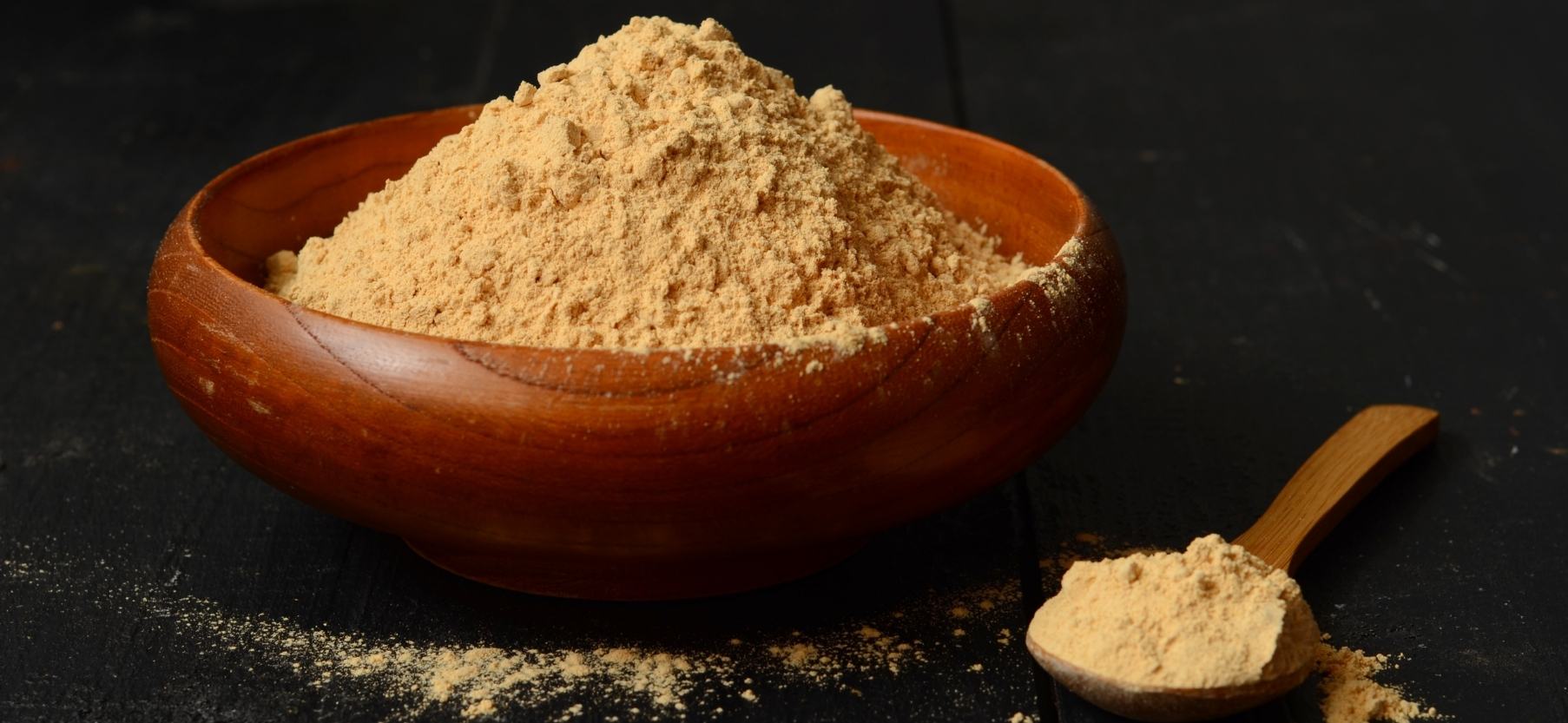The term adaptogens refers to substances (typically herbs, plants, and fungi) that promote an increased resistance to stress in the human body, and promote healthy functioning. Of course, “stress” refers to a broad range of human dysfunction, encompassing everything from sweating out a work deadline to, say, being chased by a grizzly bear.
Much of how we talk about adaptogens come from their use in Ayurvedic medicine, a traditional system of health that has been used on the Indian subcontinent for over two millennia. Ayurvedic teachings regard the human body as a holistic system, and encourages homeostasis, in which all the complex processes and forces in our bodies hang together in mutually supportive balance.
Adaptogens and Intimacy
To understand how adaptogens can affect intimacy, it can be helpful to contrast how they interact with the body compared to typical pharmaceuticals. Modern western medicine is symptom-based, meaning it attacks problems as they arise. This is why a patient who describes a decreased sex drive might be prescribed a testosterone booster or erectile dysfunction drug, and a patient expressing psychological issues with intimacy might be prescribed an SSRI or anti-anxiety medication.

Adaptogenic medicine, as we discussed earlier, is holistic, meaning it does not separate health issues into discrete symptoms, but sees them as indicative of larger imbalances in the body. Adaptogens that can help you feel more sexually healthy or closer to your partner are not aren’t “sex drugs”, they’re substances that view health as a complex system of which the libido is a part, and a crucial one at that. They’re the opposite of symptom-first treatments.
Natural Adaptogens
Ginseng, a root whose subspecies can be found all over Asia and North America, has been used in traditional medicine for millennia, and has been found to have cardiovascular benefits and to soothe anxiety. Similarly, the Peruvian root Maca, which is often mistakenly labelled as a type of ginseng, has been found in studies to increase sex drive, soothe menopausal symptoms, and even increase sperm count.

Adaptogens can also significantly help hormonal regulation, which plays a key role in a host of human bodily systems, not least of which is sexual function and fertility.
There are also products that draw on the natural materials of traditional medicine to increase intimacy, like those made by Toronto-based Province Apothecary.
From Adaptogen to Entheogen
For those following most strictly the Ayurvedic traditions of adaptogenic medicine, psychedelics are not technically adaptogens (though some traditional adaptogens, like Egyptian Blue Lotus, do have hallucinogenic properties.) But there’s no doubt that psychedelic plant medicine can lead to perspective changes that resonate with holistic philosophies. This is true of intimacy as well, and substances like psilocybin and LSD have been used in couples therapy to help resolve conflict and heal trauma. And MDMA, a drug famous for its euphoric and sexual dimensions, is being incoporated into sexual health research.
It’s important to stress that any work dealing with intimacy and psychoactive plants is dependent on a strong, clear understanding of consent. And because psychedelics can be potent mind-changers, we may need to re-evaluate our current models of consent in a new light. A spate of recent stories in which consent was violated, in some cases repeatedly, by alleged practitioners of psychedelic therapy only go to show how dangerous the potential for abuse is, and how urgently it needs to be confronted.

Intimacy, as much as stress, is an enormous category of human feeling and experience. Achieving it with another person or persons calls upon the total array of our internal resources, from the quickening of our vascular systems to the firing networks in our brains that signal arousal and attachment. If there’s any phenomenon of human experience that demands to be considered holistically, intimacy is it.
It’s not surprising then that ancient traditions of medicine, which present an alternative to the strictly hierarchical, symptom-first character of modern Western medicine, has furnished a base for modern plant medicine that pushes us to rethink our conceptual categories of health. Intimacy is an essential part of human well-being, and in turn it’s made of many other necessary positive aspects of human experience: safety, trust, feeling present, and more. Using adaptogens to increase intimacy can certainly have real, physiological benefits, but it also presents an opportunity to adopt a deeper and more encompassing perspective on what we want out of intimacy, and the many paths that can be taken to get there.

